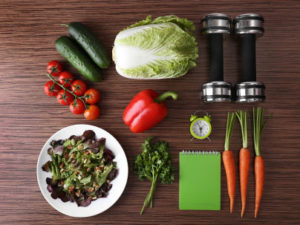Prescription drugs are often looked to first as the solution to any illness. Many Americans have now come to expect nothing less than a bottle of pills when they visit their doctor regarding a health problem.
However, health professionals and community advocates across the U.S. are beginning to change this mindset. They’re leveraging the same sense of serious obligation that comes with prescribing medicine; but instead of prescriptions, it’s about incentivizing patients to eat a healthy diet.
“Food pharmacies” in various cities allow doctors to write prescriptions for fresh, nutritious meals to boost the health of their patients.
It’s proving to be a simple, cost-effective health solution. Participants have reported weight loss and regained control over things like their blood sugar and blood pressure.
Food as Medicine
According to this 2013 study, more than half of people in the U.S. currently use a prescription drug. Yet, studies also show that many of the serious health risks Americans face could be mitigated by dietary changes.
For example, this study tracked 10 specific dietary factors with mortality due to heart disease, stroke, and type 2 diabetes among US adults. The results were somewhat startling: diet played a role in almost half of the deaths within the study, according to the Psychology Today column.
If you’ve read any of my articles, you already know I have long believed a healthy diet is the absolute foundation of physical health. In many cases, it is just as effective as any pill from a drug-company, by attacking the most common underlying cause of the health problem (instead of the symptoms).
The rest of the health community is finally taking this seriously. For example, the Food as Medicine Institute holds an annual symposium, where many medical doctors, nurse practitioners, nutritionists, and health coaches come together to deepen their understanding of using food as medicine.
Here’s a handy infographic, which shows the worst foods in your fridge! I suggest you avoid eating these, and instead stock up on lots of organic, whole fruits and veggies.
A Shift Toward Prevention
This NPR report on the topic of dietary prescriptions aptly mentions that the “health care” system in the U.S. is more accurately described as a “disease care” system. Our method of waiting for a disease to develop before it’s treated is not only worse for the patient, it’s much more expensive to our society.
 The article mentions that costs for managing diabetes in the U.S. now exceed $240 billion a year. It also cited the journal Health Affairs, that found an average health care savings of about $300 per person, per quarter of patients who participated in a diet and fitness program compared those who hadn’t taken it.
The article mentions that costs for managing diabetes in the U.S. now exceed $240 billion a year. It also cited the journal Health Affairs, that found an average health care savings of about $300 per person, per quarter of patients who participated in a diet and fitness program compared those who hadn’t taken it.
I expect that the evidence for cost savings thanks to diet-based treatments will only continue to increase.
The Philosophy in Action
Below are just a few examples of how local communities across the U.S. have begun to serve their patients by helping them eat healthy food!
Shop With Your Doc
This local TV station documented a program in Los Angeles in which doctors actually walk through the supermarket with participants, explaining the health benefits of various foods.
Fresh Health Food Pharmacy
Geisinger Health System in Central Pennsylvania runs the Fresh Health Food Pharmacy. Through its partnership with the local food bank, the “pharmacy” allows plan members to fill prescriptions for free food that can help control diabetes.
Food Rx
This program helps people living in poverty on the south side of Chicago. It’s a food prescription service developed through a collaboration between a university research team, Walgreens pharmacy, a local farmer’s market, and six local health centers.
Physician’s Kitchen
In this Gaithersburg, MD-based program, food-as-medicine practitioners teach a 4-week program on preparing healthy food that includes education, demos, recipes and more.
Eat Healthy! It’s Your Doctor’s Order
Even those of us who don’t have any of these resource nearby can learn from the success of these programs. Eating healthy should be less of an occasional option and more of a “doctor’s order.”
—
Photo credit:
- marilyna / bigstock.com








